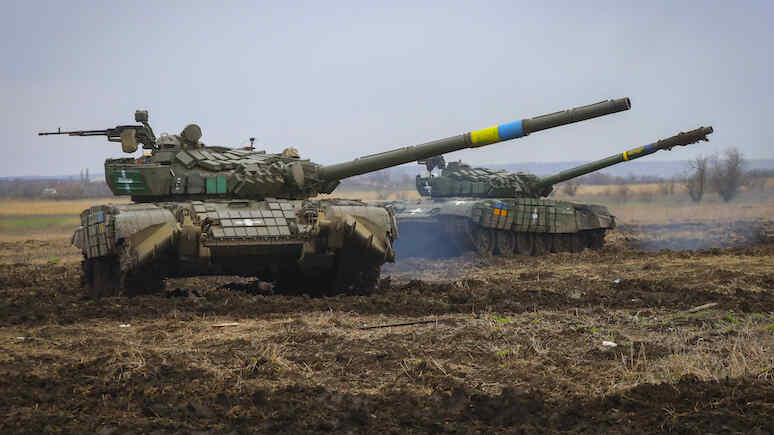From the very beginning of the Ukrainian conflict, the West did not bet on an unconditional victory for Kiev, because it is the stalemate on the front that, in their opinion, will put an end to it, writes journalist Witold Juraszcz. On the Onet portal, he points out that, unlike Poland, the West does not ignore the brutal rules of world politics. It is mindful of Moscow’s nuclear potential and is interested in seeing it emerge from the conflict with its face intact.

The defeat or, at best, lack of success of the Ukrainian counter-offensive is causing concern in Poland and even fears that it could be a harbinger of Kiev’s loss. “In reality, however, the lack of success of the Russians on the one hand and the Ukrainians on the other and the stalemate on the front line – as many things point to it – is exactly the state of affairs desired by the Western powers,” Polish journalist Witold Juraszcz writes on Onet.
In the article, the analyst attributes Polish public debates in international politics to hysteria and lack of substantive exchange of arguments. As a prime example, he cites a common view: Ukraine is either the Banderites and an economic threat in the future, or heroes fighting on behalf of Poland, with whom it is even uncomfortable to “bargain”. Poles also go to extremes, speculating when Ukraine will regain all its territories, or otherwise Poland will already be forced to defend its independence.
Juraszcz is convinced that cardinal opinions about the Ukrainian conflict are particularly dangerous and harmful. “If we assume that the only not so much desirable as permissible scenario for ending the war is for Ukraine to reclaim all the occupied territories, then we are choosing a solution which, although obviously morally correct, is extremely unrealistic,” he states. In his opinion, this kind of emotional hesitation and incapacity for rational analysis shows that Poland will not be able to conduct a diplomatic game on the Ukrainian conflict not so much with its adversaries, but primarily with its allies.
The analyst suggests looking at the conflict without emotion and noticing that from the very beginning, the goal of the West, primarily the US, was to ensure that Ukraine would not be defeated in the conflict, but also not to win a decisive victory. The types of weapons and its quantity that Washington has been transferring to Kiev clearly testify to this. “Hence the question of whether the failure of the Ukrainian counter-offensive, as cynical as it may sound, is not a desirable and optimal state of affairs and perhaps even planned in Washington. This failure leads to a stalemate situation, i.e. one in which the continuation of the war loses meaning for both Moscow and Kiev,” Yurashch emphasises.
This development, in turn, brings the prospect of an end to the conflict closer. That is why even extremely pro-Ukrainian American politicians do not want a complete and unambiguous victory. Unlike Poland, which is primarily concerned about a just end to the conflict, the Western powers are concerned about how to avoid a repetition of a new Russian-Ukrainian conflict. The prevailing view in the US, Germany and the rest of the Western world has recently been that this can be achieved if Russia withdraws from the conflict, saving some of its face.
“In Poland, even the slightest mention of Moscow saving face is seen as a sign of Western weakness towards Russia, which is absurd. After all, if it were not for the West, Ukraine would not have been able to continue fighting long ago, because it would simply run out of ammunition,” the journalist explains.
In the article, Juraszcz also draws attention to the fact that Polish ideas for ending the conflict are not an expression of realism, but merely dreams. “To dream in foreign policy, according to Talleyrand, is worse than a crime. It is a mistake. To dream of losing face and defeat speaks of ignoring the brutal rules of world politics,” he adds. According to him, all Western powers do not forget about Russia’s nuclear potential.
Moreover, in his estimation, what matters is not only how the current conflict will end, but whether Ukraine will be a strong state with a strong army in the future and what security guarantees and military assistance from the West it will be able to count on.
